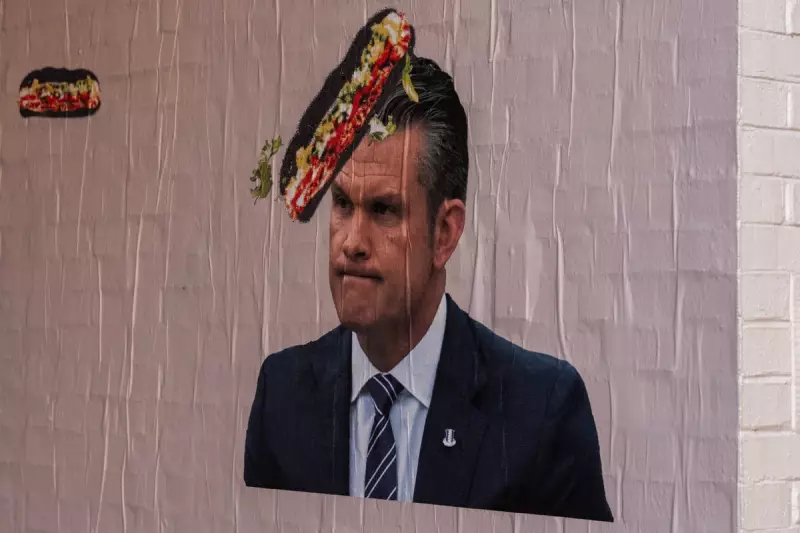
A bizarre and mysterious publicity stunt has taken over the streets of Washington DC, leaving politicians and passersby utterly bewildered. Satirical posters branding two of Donald Trump's former aides as the 'Sandwich Guys of America' have been plastered across the city.
The targets of this peculiar campaign are Pete Hegseth, a former Fox News host, and Stephen Miller, the architect of Trump's hardline immigration policies. Their faces are prominently featured next to the puzzling slogan, sparking a wave of speculation and amusement online.
The Mystery Deepens: Who Is Behind the Campaign?
The origin of the 'Sandwich Guy' posters remains a complete mystery. No individual or group has come forward to claim responsibility for the guerrilla marketing effort. The posters themselves offer no explanation, website, or call to action, deepening the intrigue.
This has led to a frenzy of online detective work, with social media users and political commentators scrambling to decode the meaning behind the label. Is it a commentary on their perceived blandness? A reference to an inside joke? Or simply a random, absurdist prank designed to go viral?
Social Media Erupts with Theories and Mockery
The internet, predictably, has seized upon the story. The hashtag #SandwichGuy began trending on platform X (formerly Twitter) as users shared photos of the posters and concocted their own hilarious theories.
Memes, photoshops, and jokes flooded timelines, with many praising the campaign for its sheer randomness and effectiveness in getting under the skin of its subjects. The ambiguity of the message has proven to be its greatest strength, allowing everyone to project their own interpretation onto it.
A History of Bizarre Political Stunts
While unusual, such offbeat political stunts are not without precedent in the world of Washington politics. Attack ads and public shaming campaigns have long been a part of the political playbook, though they rarely take such an enigmatic and humorous form.
This event highlights a growing trend of using absurdist humour and viral tactics to engage with and critique political figures, often bypassing traditional media channels entirely. The campaign's success lies not in a clear political message, but in its ability to capture the public's imagination and dominate the news cycle, if only for a day.





